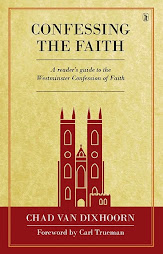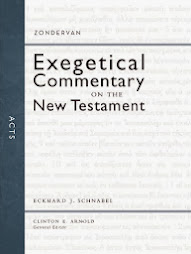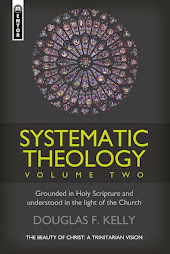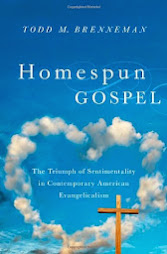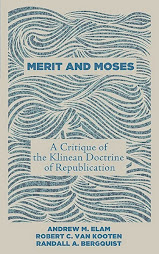
In July of 1505, a young law student named Martin Luther found himself in a horrific thunderstorm. Having closely avoided being struck by lightening and fearing he was going to die, he made an impulsive vow, “Save me, St. Anna, and I shall become a monk.” St. Anna was, according to church tradition the mother of the Virgin Mary. What no one knew, Martin included, was that God's providential hand was guiding not only the weather on that fateful night but also the seemingly impulsive promise of the young lawyer. On July 17th Luther entered the Augustinian monastery at Erfurt.
This is not to say that the decision to enter the monastery was an easy one. Martin knew he would be disappointing his parents who were dominant figures in his life. But Luther's determination to keep his promise was an indication of the kind of tenacity that would characterize his life as a theologian and churchman. It is probably true that part of what motivated Martin to enter the monastery was the haunting insecurity regarding his salvation. He referred to his lack of assurance with the strong word anfectungen or afflictions. Surely life as an Augustinian monk would give him the assurance for which he longed.
This was not the case however. Luther was a disciplined and fervent monk. His devotion, however, did not help. He would spend hours in confession haunted by his understanding of the pervasive nature of his sin. Exasperated, his mentor told him to focus on Christ and him alone in his quest for assurance. Though he continued to suffer from these anfectugen for years to come, the seeds were sown for his later conversion.
A pivotal moment in the life of the future reformer occurred in 1510 when Luther traveled as part of delegation from his monastery to Rome. He was deeply troubled by the corruption and immorality he observed within the "city of God." Not only that, Luther received no comfort from this supposedly sacred pilgrimage.
In 1511, he transferred from Erfurt to a monastery in Wittenberg where, after receiving his doctor of theology degree, he became a professor of biblical theology at the newly founded University of Wittenberg.
In 1513, Luther's critique of the Roman Church began to take shape as he lectured through the Psalms. This critique became clearer and stronger as he lectured through Paul's Epistle to the Romans (1515/16). Not only that It was during those lectures that Luther finally found the assurance that had evaded him for years. Luther's discovery (or recovery) of justification by grace alone, through faith alone, in Christ alone changed the course of church history and the history of Europe.
In Romans, Paul writes of the "righteousness of God." Luther had hated that phrase because he understood it to mean that God was a righteous judge and would therefore judge His people on the basis of their righteousness. Indeed, the Church of Rome taught that very idea. The problem is that Luther knew that human righteousness could never be satisfactory to a holy God. Through careful study of the Scriptures, something not common among monks, Luther saw clearly what Paul was teaching in Romans. Righteousness is the gift of God's grace through faith in Christ. What God demands, God provides through Christ Jesus. The recovery of the biblical doctrine of justification changed everything for Luther and set him afire. The monk became a reformer.
On October 31, 1517, Luther nailed a list of 95 theses on the door of the castle church in Wittenburg. Martin's Ninety-Five Theses were a devastating critique of the church's practice of selling indulgences. The theses also explained the fundamentals of justification by grace alone. Luther also sent a copy of the theses Archbishop Albrecht of Mainz calling on him to end the sale of indulgences. Albrecht did not appreciate the monk's zeal. Word reached Rome where the cardinals saw Luther's theses as an attack on the authority of the Pope. In 1518 at a meeting of the Augustinian Order in Heidelberg, Luther set out his positions with even more precision. In what was known as the Heidelberg Disputation Luther's thought took on a new clarity and theological maturity. It is in the Disputation where we see emerge the Theology of the Cross.
Following Luther's appearance in Heidelberg, in October 1518, Luther was ordered to recant his positions by the Papal Legate, Thomas Cardinal Cajetan. Luther stated that he could not recant unless from "scripture and right reason" it was proven that he had erred. Short of that he would not, in fact, could not recant. Luther's refusal to recant led to his excommunication.
Throughout 1519, Luther did not lay low. In fact he continued to lecture and write in Wittenberg. What is more, in June and July of that year, he participated in another debate on Indulgences and the papacy in Leipzig. The pope had had enough of this "boar in the vineyard of the Lord." On June 15, 1520 the pope issued a bull (Exsurge Domini – Arise O' Lord) threatening Luther with excommunication. Luther received the bull on October 10th. Luther demonstrated his disdain for the pope's pronouncement by publicly burning the document on December 10th.
Luther's excommunication came in January of 1521. In March, he was summonsed by Emperor Charles V to Worms to defend himself. During the Diet of Worms, Luther once again refused to recant his writings. As a result of this refusal he was placed under Imperial Ban.
Luther was now a condemned and wanted man. It is quite extraordinary that he was not captured and executed. Luther hid out at the Wartburg Castle until May of 1522 when he returned to Wittenberg. He continued teaching. In 1524, Luther left the monastery. In 1525, he married an ex-nun named Katharina von Bora. From his writings it appears that Martin and "Katy" had quite a blissful home life.
From 1533 to his death in 1546 he served as the Dean of the theology faculty at Wittenberg. He died in Eisleben on 18 February 1546.









































